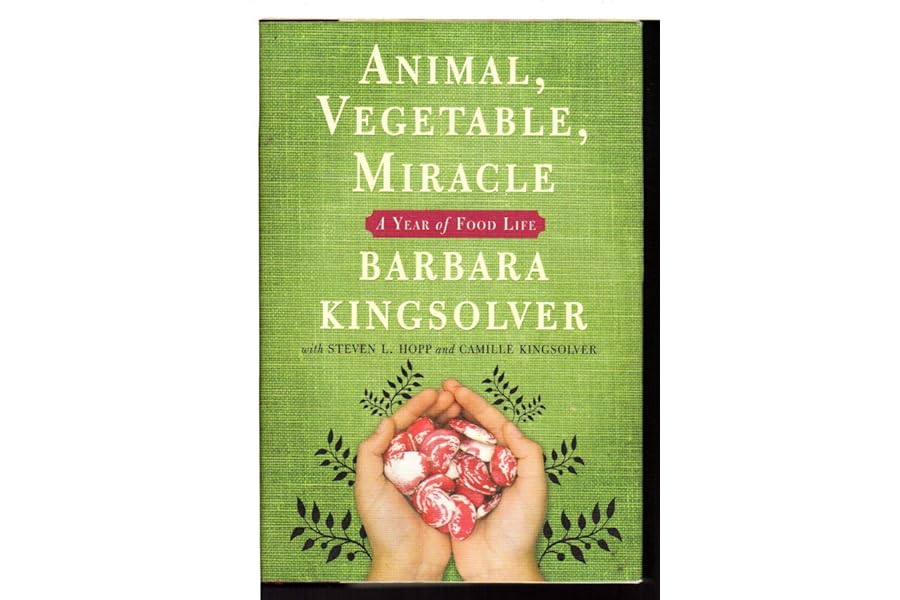One sentence summary:
Barbara Kingsolver’s ‘Animal, Vegetable, Miracle’ follows her family’s year-long journey of living solely off of locally grown food, exploring the importance and challenges of sustainable eating.
Book genre:
Non-fiction, memoir, environmentalism, food and agriculture.
Main topic of the book:
The main topic of the book is the Kingsolver family’s attempt to live off of locally sourced food for a year, highlighting the potential environmental, economic, and health benefits of sustainable eating.
Key ideas:
- The negative impact of industrialized agriculture on the environment, economy, and health.
- The importance of supporting and promoting local food systems.
- The benefits of eating in season and understanding where food comes from.
- Personal experiences and challenges of living off of a locally sourced diet.
- The importance of small-scale, sustainable farming in preserving biodiversity and promoting healthy ecosystems.
- How to take small steps towards sustainable eating and make a positive impact on the environment.
Main parts of the book and a short summary:
- Part I: Our Declaration: Beginning of the Year: This part introduces the concept of sustainable eating and Kingsolver’s family’s decision to live off of locally sourced food for a year.
- Part II: Life in a Red State: The family moves to Virginia and faces challenges in finding and growing their own food, while also learning about the history and culture of the region.
- Part III: Our Daily Bread: Kingsolver explores the importance of grains and the impact of monoculture in modern agriculture.
- Part IV: The Birds and the Bees: This section focuses on the family’s experiences with raising their own poultry and beekeeping, highlighting the importance of understanding and caring for the animals we consume.
- Part V: Missing Ingredients: The Kingsolvers face challenges in obtaining certain foods, such as sugar, coffee, and olive oil, which are not produced locally.
- Part VI: Resurrection and Revival: In the final part, the family reflects on their year of sustainable eating and discusses the impact it has had on their lives and the community.
Key takeaways:
- The negative impact of industrialized agriculture on the environment, economy, and health.
- The importance of supporting and promoting local food systems and small-scale, sustainable farming.
- The benefits of understanding where food comes from and eating in season.
Author’s background and qualifications:
Barbara Kingsolver is a renowned American novelist, essayist, and poet. She has written many bestselling novels, including ‘The Poisonwood Bible’ and ‘The Lacuna’, and is known for her passionate advocacy for environmental and social issues. ‘Animal, Vegetable, Miracle’ reflects her years of experience in growing her own sustainable garden and promoting locally sourced food.
Target audience:
The target audience for ‘Animal, Vegetable, Miracle’ is anyone interested in sustainable eating, environmentalism, and promoting local food systems. It may also appeal to fans of Kingsolver’s other works and those interested in memoirs.
Publisher and first publication date:
The book was published by HarperCollins Publishers in 2007.

